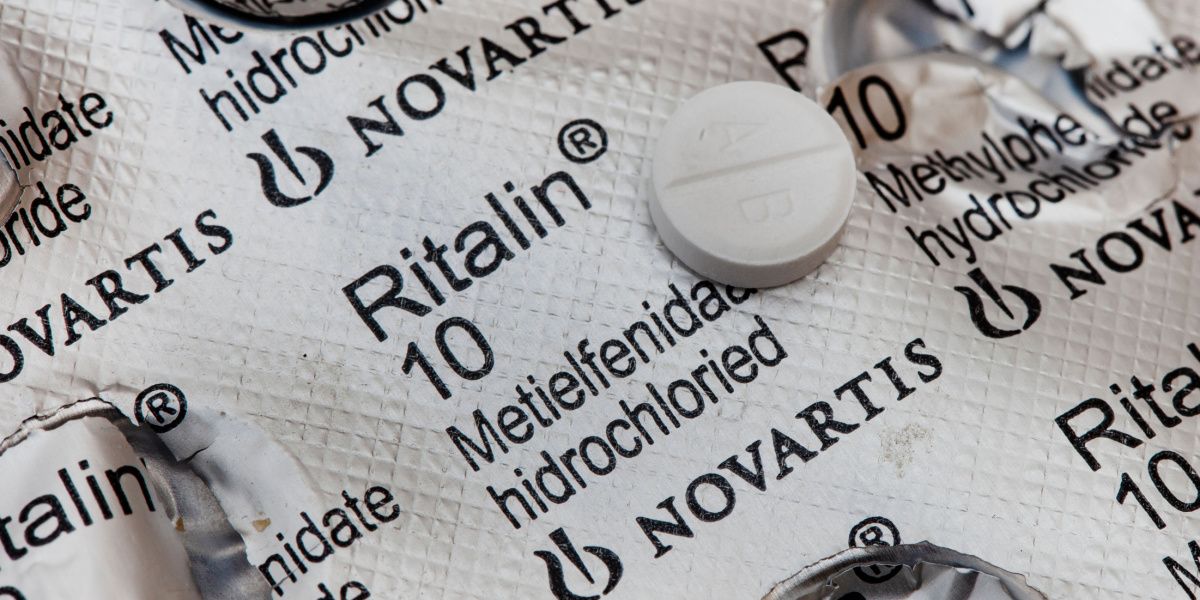More than 7 million U.S. children have attention-deficit hyperactivity disorder (ADHD), fueling a nearly 60% rise in stimulant prescriptions over the past decade. [1][2] Dexmethylphenidate (Focalin), an effective ADHD medication, provides relief similar to Ritalin at half the dose due to its potent active isomer.
- Dexmethylphenidate (Focalin) is the active d-isomer of methylphenidate, prescribed for ADHD to improve attention and impulse control by boosting dopamine and norepinephrine.
- Focalin delivers similar benefits to Ritalin at about half the dose, available as immediate-release tablets (dosed twice daily) or extended-release capsules (dosed once daily).
- Common side effects include insomnia, reduced appetite, weight loss, headache, and dry mouth. As a Schedule II stimulant, it carries a risk of misuse and dependence.
_-Benefits,-Side-Effects,-and-Misuse.jpg?v=1762860496)
What is dexmethylphenidate (Focalin)?
Dexmethylphenidate (Focalin) is a stimulant medication and the d-isomer of methylphenidate, the form that produces most of Ritalin’s therapeutic effects. It is used to manage ADHD and provides similar ADHD benefits at smaller doses than Ritalin. Like other stimulants, dexmethylphenidate works by blocking the reuptake of dopamine and norepinephrine, which increases the levels of these neurotransmitters in the brain. This helps regulate attention and behavior. [3]
Dosage and forms
Focalin is available as immediate-release (IR)tablets [4] and extended-release (XR) capsules [5].
Immediate-release (IR) Focalin:
- It is typically taken twice daily, about 4 hours apart.
- The starting dose for children new to treatment is 2.5 mg twice daily (total daily dose of 5 mg).
- If switching from regular methylphenidate (Ritalin), start with half your previous daily dose.
- The maximum recommended daily dose is 20 mg per day (10 mg twice daily).
Extended-release (XR) Focalin:
- This form is taken once daily in the morning.
- The starting dose for children (6 years and older) is 5 mg daily.
- The starting dose for adults is 10 mg daily.
- If switching from regular methylphenidate, start with half your previous daily dose.
- The maximum recommended daily dose is 30 mg/day for children and 40 mg/day for adults.
The XR version gradually releases medication throughout the day, providing symptom relief for 10–12 hours in just one dose. [5]
Medical uses and efficacy
Focalin is FDA-approved to treat ADHD in patients six years and older. It helps improve focus, attention span, and impulsivity in children, adolescents, and adults with ADHD. [6]
In head-to-head studies, an 18 mg daily dose of Focalin was found to be just as effective as 36 mg of standard methylphenidate (Concerta), confirming that the efficacy is equivalent when accounting for the potency difference. [7]
Side effects and safety considerations
Dexmethylphenidate’s side effects are similar to those of other stimulants. Common side effects include: [6]
- Insomnia or trouble sleeping
- Loss of appetite
- Weight loss
- Headache
- Dry mouth
These effects are usually temporary and tend to improve as the body adjusts to the medication or with adjustments to the dose.
Focalin may slightly raise heart rate and blood pressure. In most healthy individuals, this isn’t a concern, but those with cardiac conditions should be monitored. [6] Generally, stimulant medications are avoided in patients with severe cardiac issues. Doctors will periodically check blood pressure, heart rate, and (in children) growth during treatment.
In addition, Focalin carries a boxed warning about the potential for abuse. It is thus important to use it exactly as prescribed and under medical supervision. [6]
Potential for misuse and dependency
Dexmethylphenidate is a Schedule II controlled substance in the U.S., indicating a high potential for misuse and dependence. If taken in excessive doses or via non-prescribed methods (for example, crushing and snorting), it can produce a stimulant “high” similar to that of amphetamines or cocaine. [6] Repeated misuse can lead to addiction.
Signs of abuse include taking more than prescribed or using the drug for nonmedical reasons.
Overdose risk and warning signs
When taken in excessive amounts, Focalin can overwhelm the body. Early overdose symptoms may appear as: [8][9]
- Extreme agitation
- Uncontrollable tremors
- Racing heartbeat (tachycardia)
- High blood pressure
- Fever (hyperthermia)
- Sweating
- Confusion
- Hallucinations
In severe cases, seizures, heart attack, stroke, or loss of consciousness may occur. [9] An overdose can be life-threatening or fatal without prompt treatment. If an overdose is suspected—for example, if someone on dexmethylphenidate collapses or exhibits severe symptoms, like chest pain and seizure—call emergency services immediately.
Withdrawal and safe tapering
Suddenly stopping dexmethylphenidate can cause withdrawal symptoms. This often manifests as a “crash”: [10]
- Heavy fatigue
- Poor concentration
- Increased sleep
- Low mood or depression
- Strong appetite (rebound hunger)
In someone who has overused Focalin, abruptly stopping it may cause especially severe depression, mood swings, and irritability. [10]
To minimize Focalin withdrawal effects, doctors typically recommend tapering the dose down gradually rather than quitting suddenly. During a taper, some ADHD symptoms may return, but these are manageable and should continue to be assessed as treatment stops. Always consult a healthcare professional before stopping Focalin; they will create a tapering schedule if needed and monitor your status.
Alternative and support options
Alternative treatment options, including other medications, behavioral modifications, and support therapies, can help effectively treat ADHD.
Dexmethylphenidate vs. methylphenidate
Dexmethylphenidate (Focalin) and its stimulant alternative, racemic methylphenidate (found in Ritalin and Concerta), are closely related stimulant medications. [3] When adjusted for potency, their efficacy and side-effect profiles are nearly identical. [8]
Non-stimulant medications and behavioral support
Not everyone with ADHD can or should take stimulant medications (even though stimulant medications are the gold standard). Non-stimulant medications for ADHD are available and are effective alternatives when stimulants are not suitable. FDA-approved non-stimulants include:
- Viloxazine ER (Qelbree®)
- Atomoxetine (Strattera®)
- Guanfacine ER (Intuniv®)
- Clonidine ER (Kapvay®)
Non-stimulants have minimal abuse potential and are generally gentler in terms of side effects, though their effect sizes are typically smaller than stimulants for symptom relief. [11] They may be used in patients who cannot tolerate stimulants or who have conditions (such as tics and severe anxiety) that make stimulant use less ideal.
In school-going children, behavioral therapies and support help manage ADHD symptoms. Techniques, such as parent training in behavior management, classroom interventions, and cognitive-behavioral therapy, help develop coping skills and enhance overall daily functioning. [11]
Further behavioral strategies, like family education, organizational skills coaching, and school and workplace accommodations, are support measures that, together with medication, provide a thorough approach for managing ADHD. [12]
Preventive measures and safe use
To use Focalin safely: [9]
- Follow the doctor’s prescription.
- Do not take more than prescribed.
- Do not crush or chew extended-release capsules (doing so can release too much drug at once).
- Never share dexmethylphenidate with others.
- Store it securely, ideally in a locked location, to prevent others from taking it accidentally or intentionally.
Always inform your doctor of any other medications you take. In particular, Focalin must not be combined with monoamine oxidase inhibitors (MAOIs) (or used within 14 days of an MAOI), due to the risk of a dangerous spike in blood pressure. [13] Use caution with any other stimulants or decongestant medications that might raise blood pressure.
Follow up with your doctor to check your blood pressure, heart rate, and weight, and to assess how you are responding to the medication. [13] This helps identify any emerging issues so that they can be caught early on. If you notice any unusual physical or psychiatric signs and symptoms, please report them promptly to your healthcare provider. [9]
By using dexmethylphenidate under close supervision and as one part of a broader ADHD treatment plan (including behavioral strategies), you can maximize its benefits while minimizing any risks.

-person-thumbnail.jpg?v=1758880627)
-guide-detail.jpg?v=1756808523)

-guide-detail.jpg?v=1722501856)